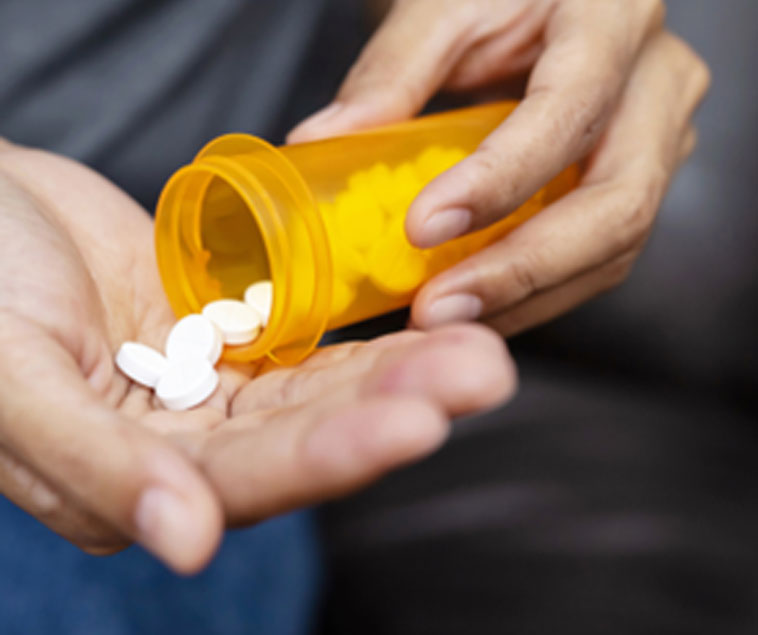Tramadol addiction
What is tramadol?
Tramadol is a prescription medication used to treat moderate to severe pain. It is a synthetic opioid, meaning it is chemically similar to other opioids such as codeine and morphine, but it is not derived from them. Tramadol works by changing how the body senses and responds to pain, helping to reduce the intensity of the pain. It is generally taken orally in either an immediate-release or extended-release form.
Tramadol is generally used to treat pain associated with conditions like arthritis, musculoskeletal pain, and chronic low back pain. It is sometimes used to treat more severe types of pain such as nerve pain or cancer pain. It may also be used in certain cases to treat depression or anxiety.
Tramadol is available in multiple forms, including tablets, capsules, and extended-release capsules.
What is addiction?
An individual with addiction is one who can no longer control their dependence on a substance, activity, or behaviour. It is a chronic illness that can seriously harm a person’s relationships, finances, physical and mental health.
Tramadol addiction can also lead to feelings of loneliness, depression, and difficulty going about daily tasks for the addicted person. It’s critical that anyone battling an addiction to tramadol gets expert assistance from a professional healthcare provider.
Tramadol addiction
It is important to use caution when taking tramadol, as it can be habit-forming and can cause serious health problems if not taken properly. If you experience any unusual side effects or if you think you may be addicted to tramadol, it is important to talk to a healthcare professional immediately.
Tramadol is generally considered safe for short-term use, but long-term use is not recommended due to risk of addiction and other side effects.

Take your first steps to recovery
The effects of tramadol
Using Tramadol is likely to make you feel drowsy and confused. Many people may look like they’re falling asleep or ‘out of it’. More serious side effects may include seizures and respiratory depression. It is important to take tramadol exactly as prescribed and to not take any more than the recommended dosage. Common side effects of tramadol include:
Drowsiness
Constipation
Feeling irritable
Nausea
Lethargic
Sickness
Loss of appetite
Itchy
Confusion
Breathing problems
Sweating
Dry mouth
Treating tramadol addiction
It is important to seek professional medical help immediately if you suspect you or a loved one may be addicted to tramadol. Our treatment programmes at Steps Together typically include a combination of clinical treatment, therapy, hospitality and accommodation. Medication can help to reduce cravings and withdrawal symptoms, while psychotherapy can provide valuable support and guidance.
For our residential and non-residential (outpatient) clients, we provide an eclectic blend of discrete, private, and confidential therapy programmes. This guarantees that we provide treatment and therapy programmes that are tailored to each individual, family, or group’s needs. These cover a wide range of addictions, disorders, and emotional and mental health concerns, and they include some of the best and most scientifically supported treatment modalities.
At Steps Together, we carefully blend clinical treatment, therapy, hospitality and accommodation to provide you with the perfect holistic environment, all under one roof, to help you enjoy your stay and make the most of your treatment programme and recovery.

Tramadol detox
The treatment we offer at Steps Together begins with a clinical detox process, which allows the drug to leave your body. During this period you may experience some withdrawal symptoms. In most cases, the withdrawal symptoms from tramadol are likely to be less intense than other substances such as heroin or opioids. Which means your brain will find it easier to adjust. Everyone’s detox will vary, but our expert clinical team will help build your individual detox based on your current dose and circumstances.
Common withdrawal symptoms:
Nausea
Feeling cold
Diarrhoea
Feeling dizzy
Sweating
Feeling anxious
Feeling irritable
Steps Together will assist you in overcoming your addiction as part of the Detox Programme. Our team of knowledgeable experts are here to help and support you at every stage of what may seem like a difficult process. Together, with a thorough plan to assist you in breaking your addiction, we will offer you a safe and welcoming environment to recovery.
For a free and confidential discussion with one of our friendly treatment advisors, please call 0330 175 7031 today.
Real stories from our previous clients

“I can’t imagine to this day what it was like for my parents, a mix of relief that I had finally agreed and disbelief that this is what it had come to.”
Ben, sober since January 2019

 Drowsiness
Drowsiness


